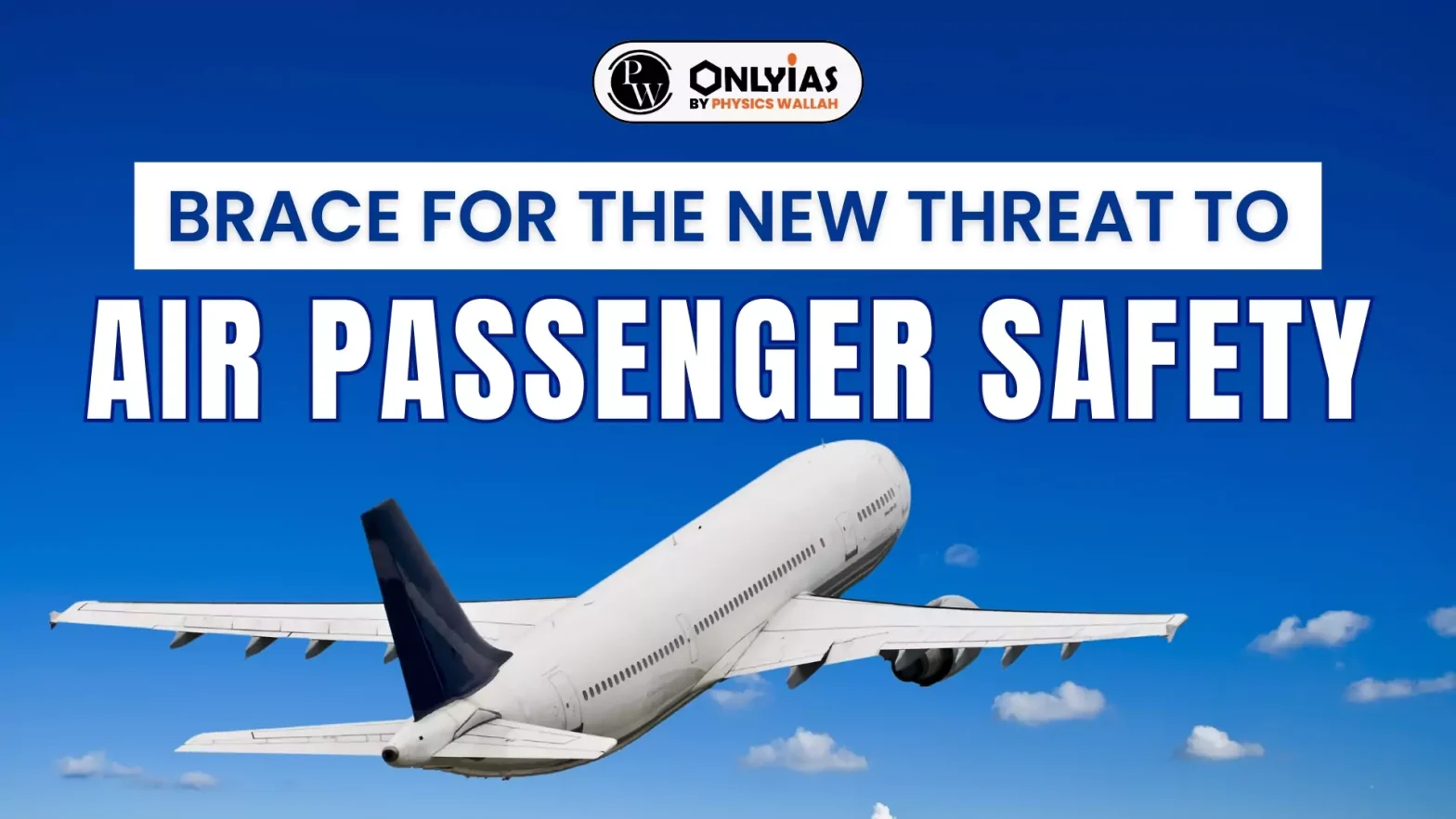Recent incidents in Lebanon involving the explosion of electronic devices like pagers and walkie-talkies, triggered by implanted codes or external signals, have introduced a new type of warfare. Initiated by Israel, this method poses a potential risk for future misuse by other states, raising serious concerns about their potential use in flights and the implications for air passenger safety.
Historical Background of Aviation Security
- 1970s-80s: Hijacking was a common method used globally to settle political scores and pressure governments. In India, incidents like the 1999 hijacking of Indian Airlines Flight IC-814 highlighted the threat.
- Post 9/11 (2001): The attacks on the World Trade Center marked a paradigm shift in aviation security. Enhanced security measures and stricter passenger screening were implemented by the International Civil Aviation Organization (ICAO) to prevent similar catastrophic events. Since then, ICAO has continuously updated global aviation security protocols.
- Impact on Passengers: These increased security measures have extended the airport security process and often led to a negative passenger experience, especially when compared to lesser scrutiny in other modes of transport, such as railways. The recent incident in Lebanon, involving explosive electronic devices, is likely to prompt even stricter aviation security procedures, potentially further extending security checks and regulations like ban of such devices etc.
Enroll now for UPSC Online Classes
India-Specific Security Concerns
- VVIP Exemptions from Security Checks: During 1989, only five categories of individuals were exempt from security checks in India. Later, the Governors of States were added.
- Current Scenario: The exemption list has expanded, now including individuals with questionable backgrounds, which raises security concerns. Globally, such exemptions are very limited.
- Non-Compliance with ‘Flight Mode’ Rules: While flight attendants instruct passengers to switch their phones to flight mode, many in India ignore this rule. In the past, air crashes have occurred due to mobile signal interference. Although newer planes have shields to protect against mobile signal interference and phones are more advanced, this remains an issue which can’t be overlooked. In some developed countries like Japan, there is strict adherence to such rules.
- VVIP Hand Luggage Handling: The ICAO mandates that passengers must carry their own hand luggage. However, in India, some VVIPs have staff handle their luggage, which can bypass security checks and pose a significant threat. Terrorist organisations and other miscreants, which are often desperate for loopholes, could exploit this to plant dangerous devices onboard.
If small explosive devices are triggered in an aircraft cabin during flight at high altitude, several serious consequences could follow:
- Cabin Fire: The explosions could ignite a fire within the cabin, posing a significant threat to both passengers and crew.
- Pressure Bulkhead Damage: Repeated small explosions could damage the aircraft’s pressure bulkhead, leading to cabin decompression. In such a case, oxygen masks would be deployed for passengers’ use.
- Catch-22 Situation: In the event of a cabin fire and cabin decompression, a dangerous dilemma arises:
- Using Oxygen: While oxygen is necessary to prevent brain damage due to decompression, it would also fuel the fire, increasing the risk of death by flames.
- Not Using Oxygen: Without oxygen, passengers face the risk of losing consciousness and eventually suffering brain death.
- Critical Time Window: There is a very short period in which passengers must put on their oxygen masks to avoid brain damage due to lack of oxygen. This makes immediate action crucial.
|
What Can be done ?
There is a growing international effort to address new aviation security threats, such as the use of small electronic devices for malicious purposes. Passengers flying from Beirut are now banned from carrying pagers and walkie-talkies due to security concerns. Similar restrictions could be implemented globally in the near future to prevent the use of devices that may pose security risks.
- Regulatory and Policy Considerations: The International Civil Aviation Organization (ICAO) safety manual has strict guidelines that must be fully followed, including
- The mandatory requirement for passengers to personally carry their hand baggage. India, in particular, faces challenges with violations of these guidelines, especially with VVIPs who bypass security protocols. The list of exemptions from security checks should be reduced to minimise risks.
- Potential New Security Measures:
- Banning Wi-Fi on Board: To prevent remote triggering of devices, airlines may need to consider banning Wi-Fi on flights, as seen in the response to the pager incident.
- Installing Signal Shields: Airports could install signal shields to block any potential external interference with onboard devices.
- Balancing 5G with Aviation Safety: When introducing 5G technology near airports, safety measures need to be carefully implemented, as was done before allowing 5G near airports to avoid interference with flight systems.
- Roles and Responsibilities
- Government’s Role: The government must take proactive measures to enhance aviation safety, including updating security protocols and addressing emerging threats. There is a need to balance aviation security concerns with diplomatic relations, ensuring that international cooperation remains strong while prioritising passenger safety.
- Airline Industry Challenges: Airlines must adapt to the rapidly evolving threat landscape, including threats from electronic devices, without compromising passenger experience. Implementing new security measures, such as banning certain devices or Wi-Fi onboard, must be balanced with maintaining operational efficiency and minimising disruption.
- Passenger Responsibilities: Passengers should comply with all safety regulations, including proper use of flight mode during flights, as non-compliance can pose serious risks. Increased awareness of potential security threats, such as the risks posed by electronic devices, is essential for maintaining a safe travel environment.
Check Out UPSC NCERT Textbooks From PW Store
Conclusion
To address emerging threats to air passenger safety, it is crucial for India to enhance its aviation security protocols while ensuring compliance with international guidelines. A balanced approach that prioritises passenger safety and efficient operations will be essential in navigating these challenges.
![]() 23 Sep 2024
23 Sep 2024
